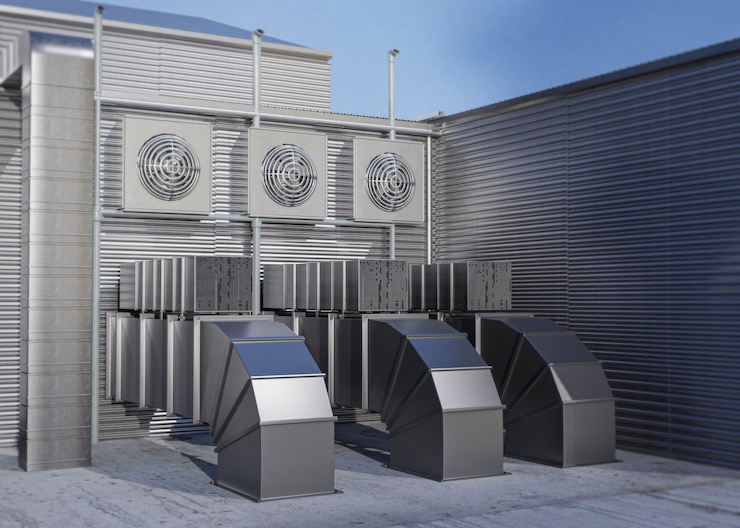4 Household Energy-Saving Tips During The Winter Season

Homeowners consume more energy in winter by turning on heaters, taking hot showers, and using electric blankets to keep them warm.
However, a rise in energy consumption also means higher electricity bills. Your energy bills can skyrocket if family members become careless and don’t practice electricity-saving methods.
But how can you save energy without compromising your family’s comfort?
Top 4 Household Energy-Saving Tips For Winter Season
Here are the top household energy-saving tips during the winter season:
1. Use Natural Gas For Heating
Fireplaces are a perfect way to chill during winter. However, they’re inefficient in making a room warm unless you sit close to it. Besides, heat escapes from the chimney, causing heat loss. So, you spend more money on wood to fire up traditional fireplaces.
Using a natural gas fireplace is the most effective option to warm your family inside the home during winter. Its open flame generates more heat than electric inserts, making it an excellent heating backup solution.

Natural gas is a more energy-efficient option for heating because it generates fewer unwanted by-products than petroleum or coal. While the combustion process releases carbon dioxide, the amount is about half of the electricity generated by coal per kilowatt hour.
Moreover, almost 50% of homes in the United States use natural gas for heating. Consumers can save on heating bills by shopping for a natural gas plan from a reliable gas supplier. And if they live in a state like Georgia, where natural gas is deregulated, they can cut their gas bill by shopping for a cheaper gas supplier.
2. Make Windows More Energy-Efficient
Homes lose a huge percentage of heating energy through windows. While window treatments can help with this problem, making windows energy-efficient is advisable to lower electricity bills during winter. Here are some ways to do this:

i. Caulking And Weather-stripping
Apply these inexpensive solutions on window joints and sides to prevent drafts. Properly weather-stripped homes can help save 5 to 10% of energy bills.
ii. Install Window Awnings
Allow the sunlight to warm your rooms during cold months with roll-up awnings. When summer months come, awnings can also help block the sunlight to reduce solar heat. Regardless of the season, awnings can help reduce your energy bills.
3. Use A Humidifier
Air moisture can help you feel warm and comfortable. However, home humidity can be a problem if you live in a colder climate due to low moisture in the air. Hence, you feel colder because dry winter air reduces skin moisture.
Avoid cranking up the heating thermostat if you don’t want to pay high energy bills. Instead, use a humidifier to banish dry air and maintain the ideal humidity levels inside your home. Additionally, running the heating system can make the air drier and the room colder.

Humidifiers replace moisture in the dry air. However, ensure you choose an energy-efficient one. Homeowners have many humidifier options to choose from, such as cool-mist, warm-mist, ultrasonic humidifiers, and whole-house humidifiers, configurable with your existing HVAC system.
Check out these tips when choosing a humidifier to help you save energy during winter:
A. Choose The Right Humidifier Capacity
Humidifier capacity measures the amount of moisture the appliance can add to the air. It doesn’t reflect the surface area the humidifier can service nor the reservoir size. The higher the humidifier capacity, the longer it can operate without needing a reservoir refill.
B. Choose The Right Humidifier Size
The water tank size measures the amount of water the appliance can hold. You can find small quarter-liter models and console models of humidifiers that accommodate up to 6 gallons of water. Large models are effective for humidifying the entire house.
C. Consider The Room Size
Choose a humidifier suitable for the room size you plan to place it in. Your living room may need a humidifier that can provide a higher humidity level than your bedroom.
4. Upgrade Your HVAC System
One way to create an energy-efficient household is by upgrading an outdated HVAC system to a newer, more modern system.
An outdated HVAC system consumes more energy because it has worn-out and failing components. Thus, it needs to work harder to attain your desired room temperature.

On the other hand, upgrading to the latest HVAC system can save you money because of its automated temperature control and other state-of-the-art features.
Therefore, consult an HVAC professional to help determine the appropriate HVAC system for your home.
Conclusion
You can save electricity during winter by finding alternative ways to reduce power consumption. You don’t have to sacrifice your family’s comfort to lower your energy bills.
Making the right choice and being aware of how you use your heating systems and appliances can make a difference.
Furthermore, you can instill discipline by reminding and educating family members about saving energy.
Additionals:











Leave A Reply